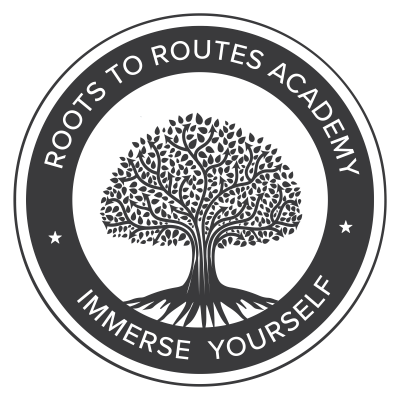The Role of Black Educators in Building a Culturally Responsive Curriculum
October 18, 2024

Imagine a student, eager to learn, sitting in a classroom where every lesson feels distant. The books they read are filled with stories about people they can’t relate to. The history they learn seems to ignore their ancestors, while science and art are taught through a lens that doesn’t reflect their reality. Slowly, they start to wonder if their own culture, their identity, even matters at all. Over time, the student becomes disconnected, feeling invisible in a space meant to inspire growth and learning.
For many Black students, this isn’t just a scenario—it’s their daily experience in schools across the country. The curriculum, often shaped by a narrow perspective, overlooks their history, contributions, and voices. This lack of representation leads to disengagement, lower academic performance, and a growing sense that they don’t belong.
This is where culturally responsive education can change everything. By including diverse voices and stories that reflect students’ lived experiences, schools can create environments where every student feels valued. At Roots to Routes Academy, we understand the power of this approach, and we are committed to empowering Black students by designing a curriculum that reflects who they are, celebrates their identity, and sets them up for success. Here’s why the role of Black educators is key to making this a reality.
Why Culturally Responsive Education Matters
Education is one of the most powerful tools we have to shape the future. But when students don’t see themselves in the curriculum or feel disconnected from the material, learning becomes much harder. A culturally responsive curriculum (CRC) changes that. It helps all students, especially Black students, feel seen and understood.
Studies show that when students learn from a curriculum that reflects their cultural backgrounds, they are more engaged, perform better academically, and feel more confident. For example, research from the New America Foundation found that students who were taught with culturally responsive practices had improved test scores and higher graduation rates.
Roots to Routes Academy recognizes this need and has created a space where Black students can grow educationally, celebrate their identities, and achieve success—without feeling like they have to conform or hide who they are.
What is a Culturally Responsive Curriculum?

A culturally responsive curriculum is one that adapts to the diverse backgrounds of students. It includes lessons and content that highlight various cultures, histories, and perspectives—especially those that have been underrepresented in traditional education. In a high school setting, this might mean:
- Reading books by Black authors alongside classic literature.
- Learning about African history in addition to European history.
- Discussing the contributions of Black scientists, artists, and leaders.
This kind of curriculum doesn’t just focus on content—it also encourages teachers to use teaching styles that respect and reflect the students’ experiences. Instead of a “one size fits all” approach, culturally responsive teaching meets students where they are and connects what they’re learning to their real lives.
The Unique Role of Black Educators
Black educators are essential in creating a culturally responsive curriculum. Why? Because they often have personal experience with the struggles and challenges faced by Black students. This allows them to teach with a deep understanding of their students’ needs and create an environment that feels safe, supportive, and empowering.
Here’s why Black educators are so important:
- Representation: Black educators provide a powerful example to students. Seeing someone who looks like them and understands their culture leading the classroom helps students feel more connected and capable of achieving success.
- Relatable Curriculum: Black educators can bring their own experiences into the curriculum. For instance, at Roots to Routes Academy, Black educators design lessons that include stories, events, and figures from Black history, science, and art that students may not encounter in traditional schools.
- Cultural Awareness: Black educators understand how certain behaviors or expressions that might be misunderstood by others are actually part of Black culture. This helps them better support and uplift students, rather than disciplining them for misunderstandings.
Research backs this up. A study by the National Bureau of Economic Research found that Black students who had just one Black teacher by third grade were 13% more likely to enroll in college. This shows the lasting impact representation can have on student success.
Empowering Students Through Representation and Inclusivity
At Roots to Routes Academy, we believe that empowering students means giving them the tools they need to be proud of who they are. For Black students, seeing their culture, history, and achievements reflected in the curriculum is key to building self-confidence and a sense of belonging.
Representation matters
When students read books by Black authors or study Black scientists, they realize that success is not limited to a certain group of people. Seeing these examples helps students believe they can achieve their goals, no matter their background.
Inclusivity improves learning
A culturally responsive curriculum isn’t just for Black students—it benefits everyone. When all students learn about diverse cultures, they become more empathetic, understanding, and open-minded. They’re better prepared to work in the real world, where diversity is a strength.
In fact, a report from Edutopia found that inclusive classrooms not only improve student engagement but also lead to better collaboration and problem-solving skills. This is the kind of future Roots to Routes Academy is building for all its students.
Overcoming Challenges in Implementing Culturally Responsive Curriculum

We know that creating a culturally responsive curriculum isn’t always easy. Some schools lack the resources, or they may face resistance from educators or parents who are used to traditional methods of teaching. However, these challenges shouldn’t stop us from doing what’s best for students.
At Roots to Routes Academy, we overcome these barriers by:
- Providing specialized training for educators: Our teachers are equipped with the skills and knowledge they need to create and deliver culturally responsive lessons.
- Engaging parents and the community: We believe in working closely with families to ensure that they are part of their child’s educational journey.
- Collaborating with other schools: We share our best practices with other institutions to help spread the benefits of culturally responsive teaching far and wide.
We understand that change can be difficult, but the results are worth it. By creating a more inclusive and supportive environment, students are more likely to thrive. Research from Stanford University shows that culturally responsive teaching can significantly reduce achievement gaps, particularly for minority students.
The Ripple Effect: How Culturally Responsive Education Benefits the Entire School Community
When schools embrace a culturally responsive curriculum, the benefits extend beyond just Black students. All students gain from learning in an environment that values diversity, inclusivity, and understanding.
By creating a culture of respect and representation, schools can:
- Foster a sense of belonging for all students.
- Build stronger relationships between students and teachers.
- Encourage critical thinking by exposing students to multiple perspectives.
This kind of education also helps reduce stereotypes and biases, promoting a more just and equitable society. In this way, culturally responsive teaching is not just about education—it’s about changing the world for the better.
Conclusion: The Path Forward for Schools and Educators
At Roots to Routes Academy, we’re committed to creating a brighter future for Black students through a curriculum that reflects who they are. But we can’t do it alone. We need teachers, parents, and schools to join us in building a more inclusive, culturally responsive education system.
For schools looking to make a change, here are a few ways to get started:
- Hire and support Black educators who can bring valuable perspectives into the classroom.
- Incorporate diverse voices into your curriculum, including books, history lessons, and cultural studies.
- Create safe spaces where all students feel seen, heard, and valued.
The future of education is here, and it’s time to make sure no student is left behind. Roots to Routes Academy is leading the charge in culturally responsive teaching, and we invite you to be part of the journey. Don’t let your students miss out on this empowering opportunity—join us today and help shape a more inclusive tomorrow.
![]()
Related Posts
We’re So Glad You Made It Here
We know you might still have a few questions or concerns and that’s completely okay. We’re here to listen, to support, and to make sure you have all the information you need.
If something’s on your mind, don’t hesitate to reach out. Just send us a quick message, we’re happy to help.
Once you do, a member of our team will get back to you shortly and you’ll also start receiving our free, value-packed newsletters filled with tips, resources, and insights to support your child’s learning journey.

